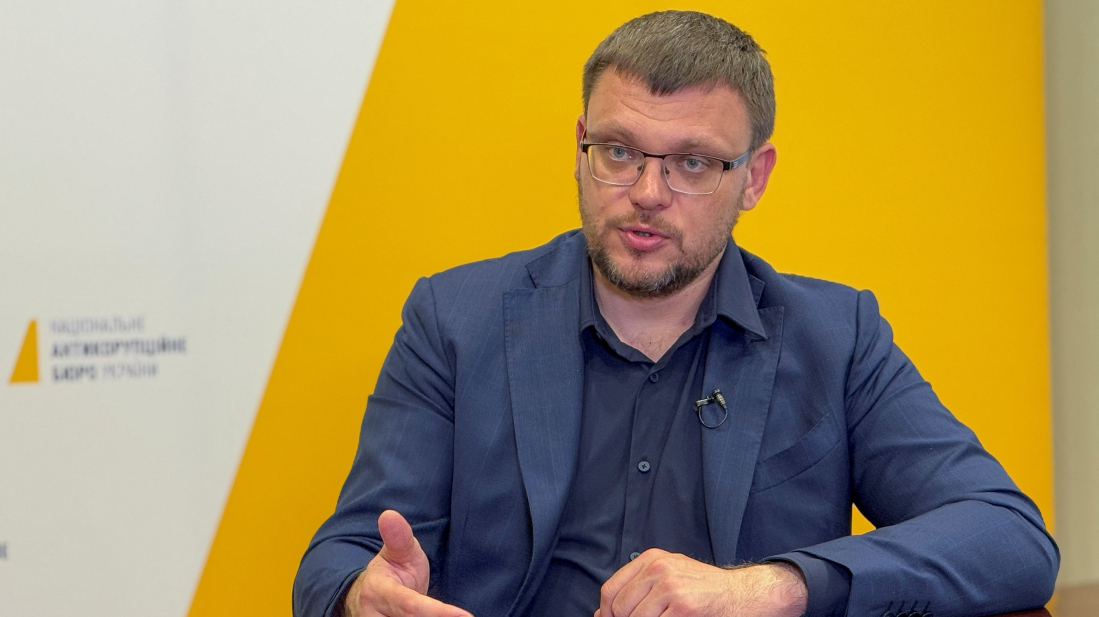Cuba fuel crisis turns into waste emergency as trash piles up in Havana amid energy blockade
Cuba’s fuel crisis has turned into a waste crisis, with garbage piling up on most street corners in Havana as many collection trucks lack enough pet...

Ukraine's top anti-corruption official says efforts to weaken his agency will continue, despite President Volodymyr Zelenskyy reversing a controversial law that sparked public outcry and EU concern.
Ukraine’s anti-corruption campaign remains under threat, according to Semen Kryvonos, head of the National Anti-Corruption Bureau of Ukraine (NABU), who said on Friday that “attempts to destroy” the independence of his agency are far from over.
His remarks followed President Volodymyr Zelenskyy’s unexpected reversal of legislation that would have curbed the autonomy of NABU and the Specialised Anti-Corruption Prosecutor's Office (SAPO), prompting rare street protests during wartime. Thousands rallied in Kyiv and other cities after parliament fast-tracked the bill, which gave a Zelenskyy-appointed general prosecutor control over both bodies.
"This was a shock for me – how much demand had built up to destroy us," Kryvonos told Reuters in Kyiv, calling the move a coordinated attempt to “ruin our independence.” He did not name specific figures behind the push, only referring to “various representatives of the government, various financial groups.”
On Thursday, Zelenskyy submitted new legislation to restore NABU and SAPO’s independence, an effort widely seen as damage control to prevent further erosion of public trust and to preserve Kyiv’s alignment with European Union standards. The bill will be debated in a special parliamentary session next week.
But Kryvonos warned that opponents are likely to escalate efforts to discredit the agency, including what he called a “dirty information campaign” on anonymous Telegram channels that paint NABU as ineffective.
He added that a recent crackdown on his agency – including the arrest of two NABU officials for alleged ties to Russia and searches targeting nearly 20 employees – was triggered by the bureau’s high-profile investigations.
“These events were a result of systemic work by NABU and SAPO, especially over the past half-year,” Kryvonos said. He confirmed receiving “a huge amount” of threats.
NABU and SAPO were formed in the aftermath of Ukraine’s 2014 revolution, with backing from Western partners to tackle entrenched corruption. Their work is viewed as crucial to Ukraine’s EU accession efforts and its post-Soviet reform agenda.
The agencies have brought charges against sitting lawmakers and government officials. One of the latest cases involves a then deputy prime minister accused of accepting a $345,000 bribe, while another exposed a major real estate fraud scheme in Kyiv.
The legislation Zelenskyy was forced to retract had won support across much of the political spectrum – from members of his own Servant of the People party to opposition lawmakers and remnants of pro-Russian factions.
Kryvonos cautioned that political elites still see anti-corruption bodies as a threat. “They need to stop considering us as enemies,” he said, “and accept us as an important part of state institutions.”
U.S. Ambassador to NATO Matthew Whitaker said China has the power to bring an end to Russia’s war in Ukraine, arguing that Beijing is enabling Moscow’s military campaign.
Austria’s Janine Flock won the gold medal in the women’s skeleton event at the Milano-Cortina 2026 Winter Olympics on Saturday.
Iran’s Supreme National Security Council Secretary Ali Larijani said the United States could evaluate its own interests separately from those of Israel in ongoing negotiations between Tehran and Washington.
U.S. Secretary of State Marco Rubio on Sunday (15 February) called it “troubling” a report by five European allies blaming Russia for killing late Kremlin critic Alexei Navalny using a toxin from poison dart frogs.
Israel’s National Guard is preparing to deploy drones capable of firing tear gas at Palestinians in the occupied West Bank, including East Jerusalem, as part of security preparations ahead of the Muslim holy month of Ramadan, Israeli Channel 12 reported on Saturday.
The Prime Minister, Mark Carney, announced on 16 February that the Honourable Janice Charette has been appointed as the next Chief Trade Negotiator to the United States.
Cuba’s fuel crisis has turned into a waste crisis, with garbage piling up on most street corners in Havana as many collection trucks lack enough petrol to operate.
Day 10 of the Milano Cortina 2026 Winter Olympics delivered high-stakes semifinals, dramatic finishes and classic podium moments across Milan and the Italian Alps. Photographers captured split seconds of symmetry before puck drops, explosive turns on the ice and triumphant celebrations.
The mother and widow of Russian opposition leader Alexei Navalny marked the second anniversary of his death on Monday, as European allies released an assessment saying he was poisoned, adding that the Russian state had the means, motive and opportunity to deploy the lethal toxin.
U.S. Secretary of State Marco Rubio said Washington is ready to pursue diplomacy with Iran as nuclear talks resume in Geneva, using a visit to Budapest on Monday (16 January) to reaffirm both U.S. negotiating aims and strong ties with Hungary ahead of its April election.
You can download the AnewZ application from Play Store and the App Store.

What is your opinion on this topic?
Leave the first comment